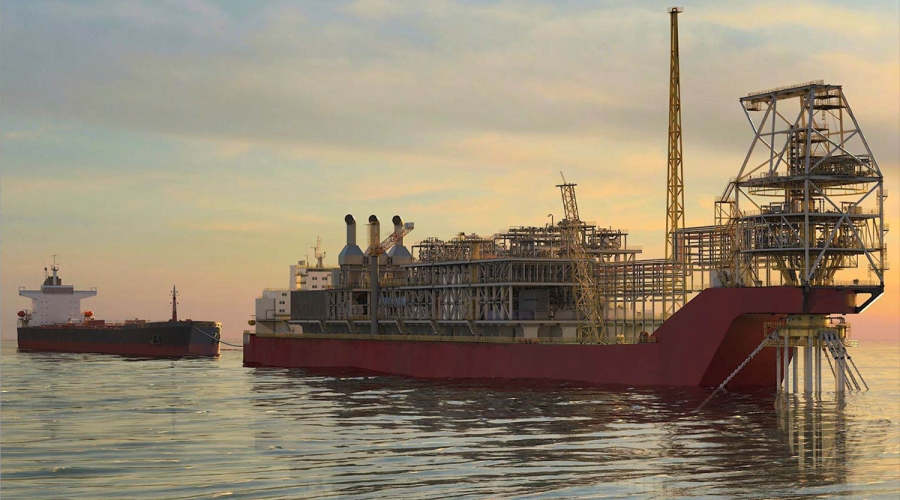Senegal's New Leader to Rein in Aussie Oil Giant

Woodside can no longer treat Senegal's waters as its private playing field for extractive profiteering. The audit signals that a new era of accountability has dawned, where resource projects must prove their worth to Senegalese society.
Senegal’s President Bassirou Faye has announced plans to audit Senegal's oil, gas and mining sectors. Central to this audit is the scrutiny of Woodside Energy, Australia's largest oil and gas producer, which holds significant stakes in the Sangomar offshore oil and gas field. This massive oil development has been mired in controversy since its inception, with human rights groups warning of dire environmental and social consequences that could undermine the very communities it claims to benefit.
The skepticism about the economic benefits of these projects is warranted. Historically, large-scale developments in resource-rich regions have often failed to translate into tangible improvements for local communities.
As such, the audit by President Faye’s administration presents a pivotal opportunity to course-correct on this risky venture and ensure that Senegal's natural resources truly serve its people. For too long, the extractive industry has bulldozed over local interests, prioritizing profits over environmental protection and economic justice. Woodside's Sangomar project epitomizes this pattern of resource exploitation that enriches corporations while impoverishing communities.
As ActionAid Australia, Jubilee Australia, and Caritas outlined in their 2019 joint submission, the project is fundamentally at odds with global climate action as it unlocks a massive new fossil fuel reserve. In an era when we must urgently transition away from dirty energy, greenlighting a offshore megaproject is an unconscionable backslide that will exacerbate the climate crisis's brutal impacts on vulnerable Senegalese communities.
Moreover, the groups rightly question whether this $4.6 billion investment will deliver any tangible economic benefits to local communities in Senegal. Time and again, extractive projects have failed to uplift local economies, as profits are offshored to multinational coffers while communities are left with environmental ruin and crumbs.
The audit must scrutinize the fiscal terms to ensure Senegal receives its fair share of oil revenues to invest in sustainable development. The audit must set a precedent of entrenching actual community ownership in the project. In that regard, local communities must become bona fide shareholders in the Sangomar offshore project. That way, Woodside Energy will be answerable to them as shareholders, not just local communities. Even more important from a livelihood perspective, their status as shareholders will guarantee them a substantial share of the millions Woodside Energy will earn from the ensuing oil.
Perhaps most damningly, the presidential audit should unearth potentially catastrophic consequences in the case of an oil spill. Senegal's rich marine ecosystem is the lifeblood for countless coastal villages – an offshore spill would obliterate this vital resource, imperiling food security, public health, and indigenous livelihoods. Furthermore, such a disaster would not only impact Senegal but could also devastate neighboring countries like the Gambia, amplifying the urgency for robust oversight and accountability measures. Even without a worst-case event, routine pollution from drilling muds and noise will degrade this fragile environment. Since the project has already taken off, revised terms and conditions must compel Woodside Energy to pay billions (not millions) of dollars in case of an oil spill. God forbid.
Indeed, the audit creates a critical window to revisit the project fundamentals and align it with Senegal's environmental and economic interests. In addition to the local community shareholding, a revised revenue sharing model must deliver a significant direct stream of oil profits into a public trust for coastal communities. Additionally, stringent environmental oversight, spill monitoring, and response capabilities must be mandated to safeguard this irreplaceable marine territory.
Woodside can no longer treat Senegal's waters as its private playing field for extractive profiteering. The audit signals that a new era of accountability has dawned, where resource projects must prove their worth to Senegalese society. If this multibillion-dollar gambit cannot be fundamentally reformed to protect the environment and uplift local economies, then it deserves to be scuttled.
Senegal's people have shouldered the costs of extractivism for too long while multinational firms reaped the rewards. President Faye's audit must be a clarion call to finally reverse this unjust paradigm. The world will be watching to see if Woodside's Sangomar project can meet this socio-environmental litmus test – and if not, be completely overhauled.
This email address is being protected from spambots. You need JavaScript enabled to view it.

 En
En  Fr
Fr  Ar
Ar